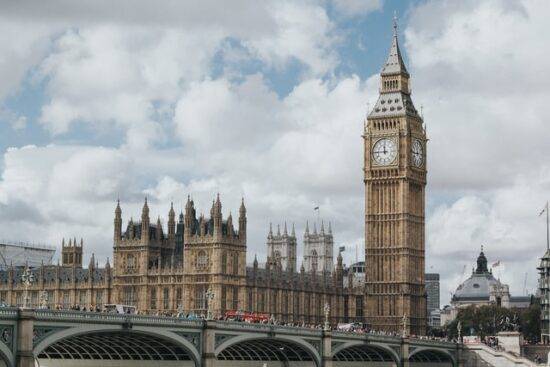The “rise and fall” of British Prime Minister Boris Johnson.
Boris Johnson resigned on July 7 in his latest political crisis, following the resignation of key ministers and other officials.
He said he will remain as interim prime minister until his replacement is chosen by his party.
The wave of resignations began on Tuesday, despite Johnson’s apology – after Chris Pincher, a former minister, “was unfit for a government job” after sexual misconduct complaints were made against him.
Those who resigned over the scandal said they lost faith in Johnson’s ability to govern in the national interest.
The final crisis came just weeks after Johnson survived a no-confidence vote in early June by members of parliament from his Conservative Party by 211 votes to 148.
Johnson’s leadership has come under intense scrutiny after an investigator’s report in May criticized a culture of rule-breaking within the prime minister’s office in a scandal known as “Partygate”.
The report described alcohol-fuelled events held by Downing Street staff in 2020 and 2021, when coronavirus pandemic restrictions prevented UK residents from socializing or even visiting relatives.
So Johnson, 58, has spent months fighting to maintain his grip on power after the controversy saw him become the first sitting UK prime minister to reveal he had broken the law.
Career “before entering politics”
After studying at Eton and Oxford, Johnson worked as a reporter and writer for right-wing magazines and newspapers before starting his political life as an MP.
He later became mayor of London, foreign secretary and eventually prime minister.
Until his final weeks in office, some will remember him as a leader “in many ways.”
“Although he was in two minds about whether to support the Remain or Leave campaign, he spoke with a fair degree of commitment against the UK staying in the EU,” David Phinnemore, a professor of European Politics at ” Queen’s University Belfast”.
One of the originators of Brexit, as prime minister, he led the country on the way out of the bloc.
He was ultimately the prime minister who secured a withdrawal agreement that had the support of the British parliament.
“What was important was the security of the deal, not its substance,” Phinnemore estimates.
“Finish Brexit”
Johnson stepped into Number 10 with a promise to “finish Brexit” after the previous Conservative prime minister, Theresa May, resigned over a parliamentary deadlock on the UK’s withdrawal deal from the EU.
To break the deadlock, Johnson called for a general election on December 12 – a gamble that paid off.
He won convincingly against former Labor leader Jeremy Corbyn.
On January 31, after three and a half years of political wrangling and delays, the United Kingdom officially left the EU.
Little changed on the ground as a transition period began, a phase Johnson said he would refuse to extend beyond the end of 2020 despite the coronavirus crisis delaying negotiations with the bloc.
While Johnson’s critics have hailed him as a “clown figure”, his supporters praise his optimism and determination to get things done, including Brexit.
“As mayor of London, it’s charisma that enabled him to rise across political divides,” John Curtice, professor of politics at Strathclyde University, told Al Jazeera.
“He was able to get re-elected in a city that was becoming more and more Labour, and he was able to do it even though his party was not very popular. He was able to reach a fairly wide social ground.”
The former prime minister campaigned strongly for Brexit in the 2016 referendum when he was mayor of London.
He said a British exit from the EU would be a “win-win” and argued that membership of the bloc “costs a huge amount of money and subverts our democracy”.
Also between 1989 and 1984, Johnson was equally unstinting in the work of the now 27-member bloc.
His sensational and humorous stories went on to become part of the British psyche, as well as – unwittingly – the bedrock of the country’s Euroscepticism.
During his two-year stint as foreign secretary in Theresa May’s government – a position he resigned from in 2018 – he was considered by many of his critics to be “undiplomatic” in his way of doing politics.
But that didn’t stop him from becoming the front-runner in the race to replace May just a year later.













